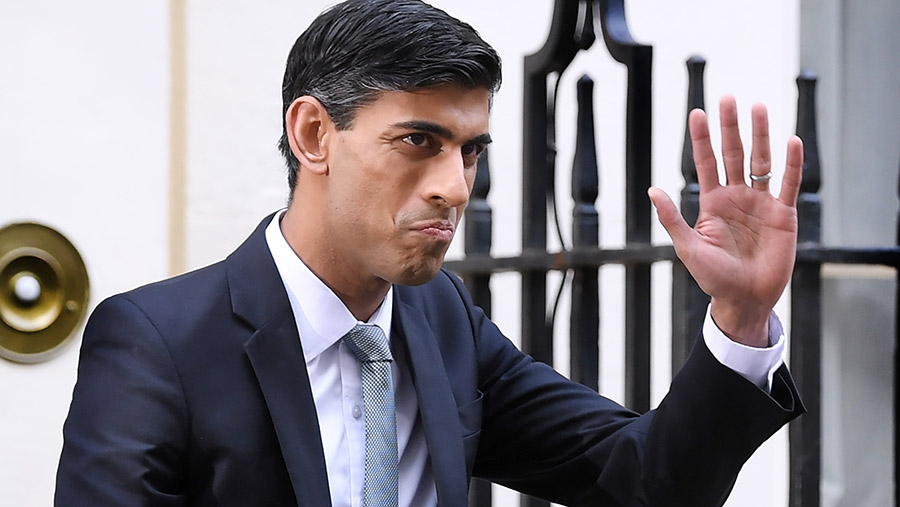Opinion: Could the chancellor be agriculture’s new best ally?
 © James Veysey/Shutterstock
© James Veysey/Shutterstock The new chancellor, Rishi Sunak, has delivered his historic Budget. Thankfully, our worst fears were not realised and he listened to lobbying from the NFU and others, allowing agriculture to keep the red diesel subsidy.
A senior politician who listens to the concerns of agriculture is rare in the current parliament.
It is more than four years since Mr Sunak published a 10-point plan to help dairy farmers in his role as MP for the rural Yorkshire constituency of Richmond.
Much has changed since then, and it seems apt to revisit his suggestions. They included:
- A fair milk price from retailers
- An end to milk being sold as a loss-leader
- Better labelling of British produce
- More domestic production of dairy products
We have left the European Union, which should make better labelling easier, at least. But the gap between the top and bottom of the milk price league table yawns wider than ever, and milk is certainly still used by retailers as a loss-leader.
See also: What the 2020 Budget means for farmers
Whereas in the past, the top prices were generally paid by retailer-aligned contracts, today it is Arla that leads the field by a huge margin. Its portfolio of branded products and its leadership stance on issues such as bull calves and carbon is certainly working.
Meanwhile, many other processors are struggling to balance supply with the decline in demand for liquid milk.
If the virus becomes widespread, imports may be restricted, but people will still want a supply of staples like high-quality fresh milk, cheese and yoghurt
Meadow Foods’ bombshell announcement of a 2p/litre milk price drop for Cumbrian suppliers due to the loss of a significant contract with Arla will have added insult to injury. It also demonstrates Arla’s effect on prices throughout the industry.
The UK has just recorded the first trade surplus for dairy, which should be a momentous occasion, particularly as we look to increase trade on the global stage.
Yet the milk market still feels dysfunctional and there is no evidence that this will lead to higher farmgate prices in the short term.
It seems that domestic supply and demand is still having the greatest effect. Mr Sunak was wrong to say we need more domestic production of dairy – what we need is more consumption and investment in processing.
He also suggested in 2015 that, with Britain only 60% self-sufficient in food, our ability to feed ourselves in a crisis is diminished.
As the effects of coronavirus become more significant, his comments feel almost like a premonition.
They also contrast sharply with the leaked comments of his economic advisor Tim Leunig, suggesting Britain does not need its own agricultural industry.
If the virus becomes widespread, imports may be restricted, but people will still want a supply of staples like high-quality fresh milk, cheese and yoghurt.
Mr Sunak also stated: “As global food consumption rises, efficient and competitive farms can grow and export around the world. Farming is already a great British industry and I will ensure it has every opportunity to flourish in the years ahead.”
Contrast that with new Defra secretary George Eustice’s refusal to rule out imports of chlorinated chicken on multiple occasions, and the fact he voted against his own proposals to protect post-Brexit food standards in a recently tabled amendment to the Agriculture Bill.
Against this, Mr Sunak may be an important ally in what feels like an unsympathetic government, and it will be important for farmers and the NFU to leverage this as we negotiate trade deals in future.
